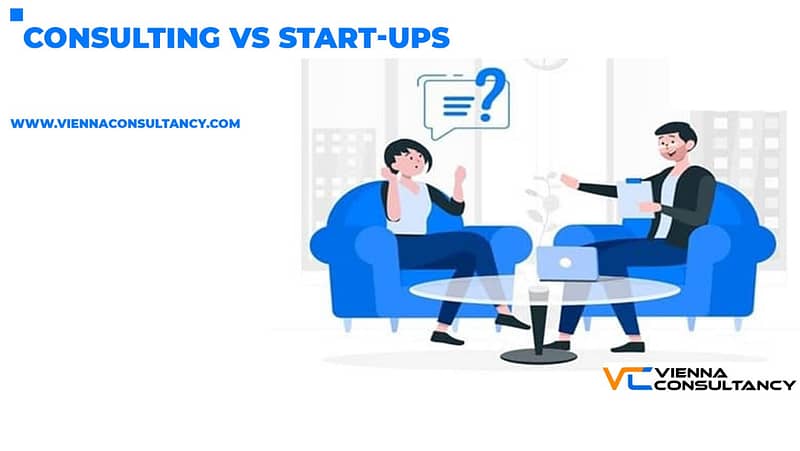Working in a start-up is increasingly seen as a competitive alternative to working in strategy consulting.
If you are confused between two and wondering which one to consider, this article can help you to make a better choice and help you to know what to expect or what to not?
The “pros” of working in a start-up:
As an employee in a start-up, you’re likely to feel stronger and more confident. There is a product to deliver or industry to change and everyone in the company is driving towards this one outcome. Start-ups tend to be more appealing to those who love to have a specific aim and a mission in mind and enjoy working towards one thing over years.
Start-ups can be more exciting as well as full energetic as they are full of young people with great energy levels. They believe in the statement “work hard and play hard” and this is a very common thing in new and small start-ups.
There is a great opportunity to get a name and fame if your start-up takes off and you have equity in the business. However, this is not the only side of the coin.
There are lots of opportunities you will get to learn “by doing” in a start-up versus a strategy consultancy. Of course, this truth is only true for some people more than others.
Start-ups are often chaotic and understaffed, so if you’re opportunistic you can find responsibilities for yourself, quickly manage a team, be responsible and make fast decisions that increase the business growth and development.
As we all are well aware of the truth that there is generally not a great scope of “career” in a start-up, which means you don’t have a clear view of the progression and financial reward you’re likely to get in the future.
The “cons” of working in a start-up:
All Startups are not the same, some succeed in just a few years whereas lots of small companies have not been able to manage the name of their organization in the market.
This means you can find yourself working very hard with full enthusiasm for two to four years while potentially not having anything to show for it at the end.
This could be fine if you’ve learned a lot over that time. But in reality, the focus of the work in a start-up is on executing rather than strategizing. So, if you want to learn about strategic decision-making, start-ups are usually not the right choice for you.
Start-ups are also not good for mentorship. You may find yourself being managed by someone young who does not have the proper experience and they also don’t have much time to teach you and may not have those skills that they need to run a business. This can make the situation stressful for your team.
In most cases, the day-to-day environment of a start-up can be stressful with under-qualified team leaders and an ill-defined scope of responsibility for employees who work towards constantly changing targets.
The Pros of working with a consultant:
As an employee, if you are working with a consultant then it can be proved the best choice for you as they have a lot more opportunities as compared to start-ups. Consultants are well established in the market and they need someone who can analyze markets, follow the latest trends and offer good advice.
Businesses both new and old tend to appreciate consultants as they have helped them a lot and it means that they can get more job offers from clients that may be more attractive.
You can build a large network…
The biggest part of success in any career is creating a strong network of fully motivated people, experienced professionals who can help you to work in a better way, and overall achieve your goals. As you help them, they will also help you and that’s a victory for everyone.
Being a consultant often means working within a collaborative environment, which means when you are working in a team you get to know the people more closely. With Consultants you will get the opportunity to work with new clients every day, which means your network is constantly growing with different professionals.
The Cons of working with a consultant:
If you work for a consultant then obviously you are answerable to your seniors. Sometimes for consultants, you have to answer your clients as well. More clients mean more responsibilities, and you have to follow their rules.
Even if you’re freelance, you’re not fully independent. You will not get that kind of freedom in your workstation.
• No job is completely stress-free, but consultants might feel the pressure more than other professions. In a sense, that’s a consultant’s job.
• Above all, you’re expected to get results, whether that means increasing ad reach or market share or achieving the targets.
Previous Posts: What is a Hybrid Work Station and Why Do Employees Want It?
The Top 5 Reasons Why People Fail at Consulting Interviews
Internal Vs. External Recruitment: Pros and Cons






